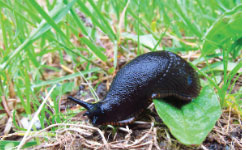Harvest 2021 is coming to a close. The recent dry spells have played a key part in farmers wrapping up the harvest in a timely fashion. Harvest reports are generally satisfactory with some excellent yields of cereals, rape and pulses.
It has been slow getting straw baled in parts of the North East, with heavy dews and overcast days slowing the drying of straw. However, by now many fields are clear and ready for cultivations.
Aim to get all field maintenance jobs (hedge cutting, levelling, drainage etc.) in the field done now before the busy sowing period kicks in. Cutting hedges is now permissible and should be carried out as soon as possible. Where compaction was an issue, sub-soiling should be considered.
Straw should be incorporated at this stage where fields were chopped. Where brome was an issue, it is vitally important to get some light cultivations underway to encourage seeds to germinate. Allow minimum of 3 weeks before burning off as a dry September looks to be on the cards. Focus on headlands especially, as this is where brome first becomes an issue. Acting now before it is too late can help to reduce the likelihood of herbicide resistance down the line, and is a key component of integrated pest management.
There is still time to get OSR into the ground before it is too late. Switching to a more vigorous variety with rapid autumn development such as DK ExStar is key when sowing into September. This is a variety with excellent resistance to lodging and has high stem stiffness. Keep the seeding rate high when sowing later. Ensure to consider the thousand grain weight of the seed when calibrating the sower. When sowing OSR, it is important to get the basics correct: ensure pH is above 6.5, sow into a fine firm seed bed with good seed-soil contact. To ensure an optimal establishment, incorporate the appropriate fertiliser to the seedbed based on up-to-date soil indices.
 Be on the lookout for slugs, flea beetle and pigeons grazing your crops. Shot-holes in the leaves are a result of slug damage. Slug pellets may be necessary.
Be on the lookout for slugs, flea beetle and pigeons grazing your crops. Shot-holes in the leaves are a result of slug damage. Slug pellets may be necessary.
Recommended lists for winter barley, winter wheat and winter oats for 2021
The Department of Agriculture has recently released the recommended lists for winter barley, winter wheat and winter oats for 2021. Have a look at these to see what options are available to the grower for the upcoming winter sowing season.
Torp performed extremely well in 2021, with many growers reporting yields of over 5t/acre. Choosing Torp this year can bring a number of advantages:
- High yield, with moderately late maturing.
- Good resistance to lodging
- Moderate resistance to straw breakdown.
- Good resistance to Septoria tritici.
- Moderately resistant to sprouting.
- Good grain quality.
If you are considering growing this variety, contact us at YOUR local Drummonds for further advice.
To find Your Local Drummonds Branch - CLICK HERE

